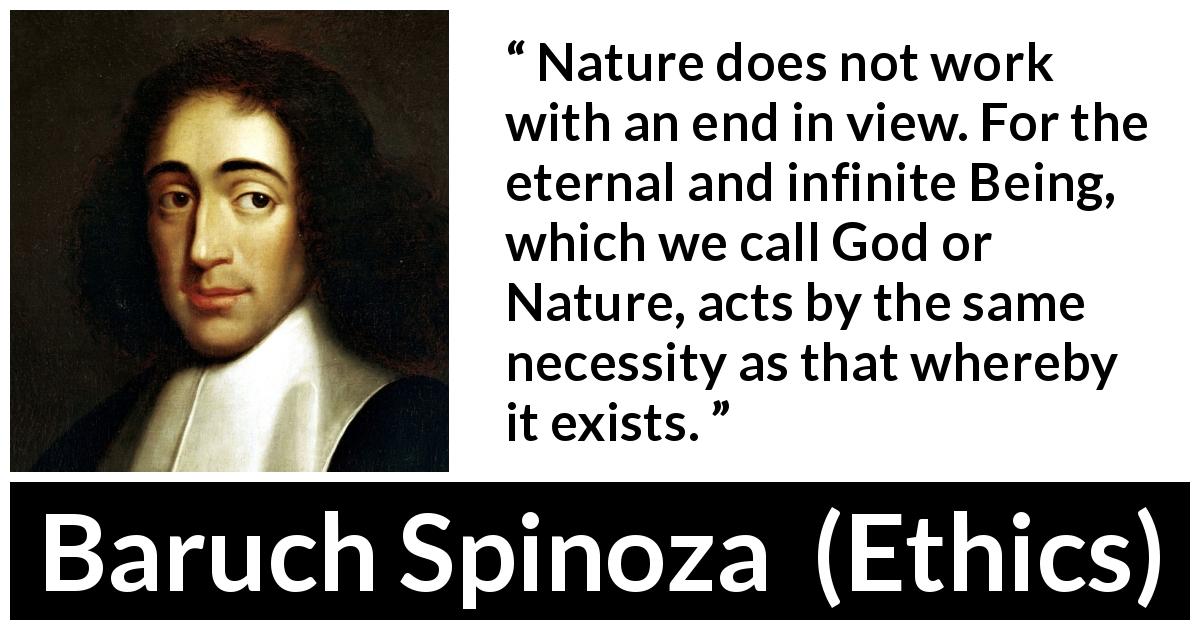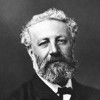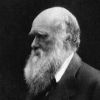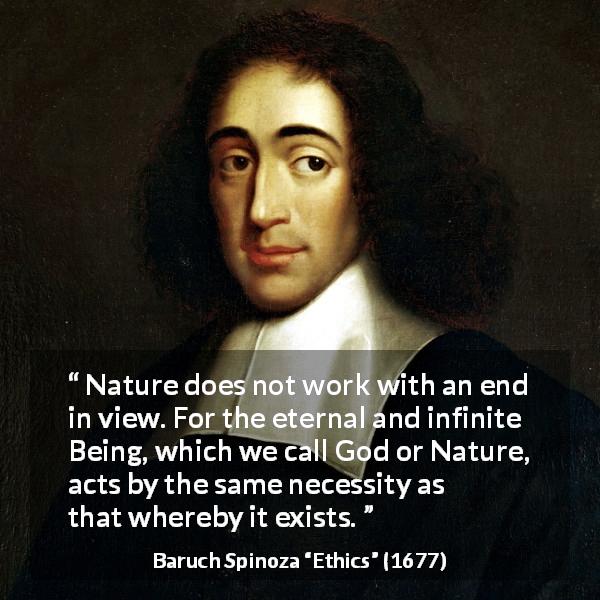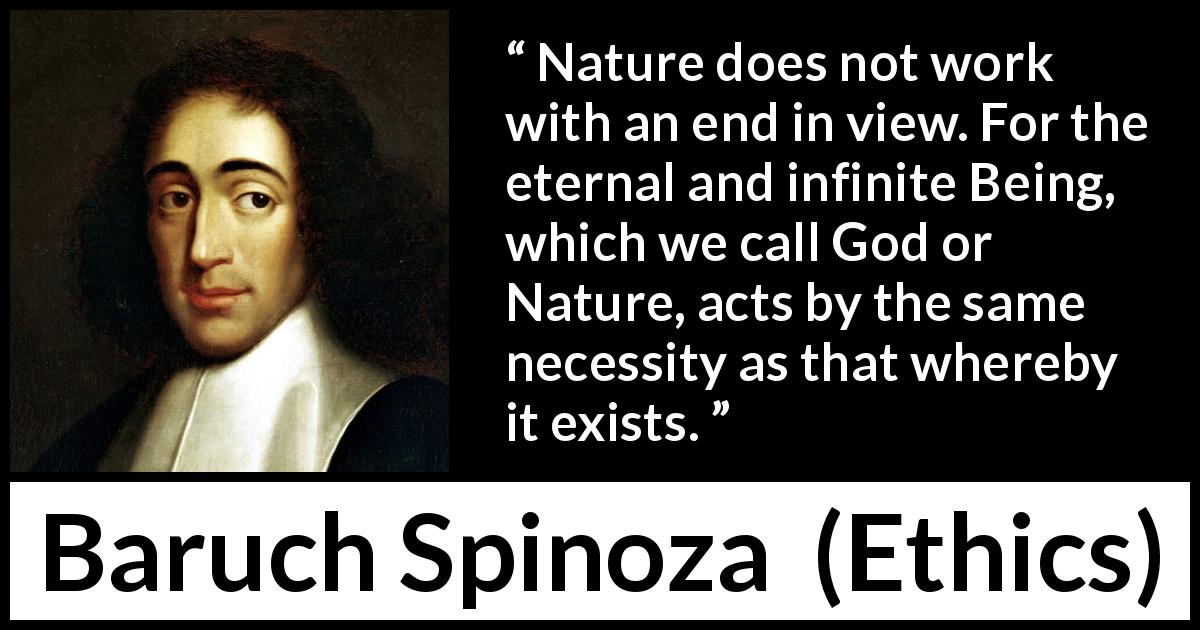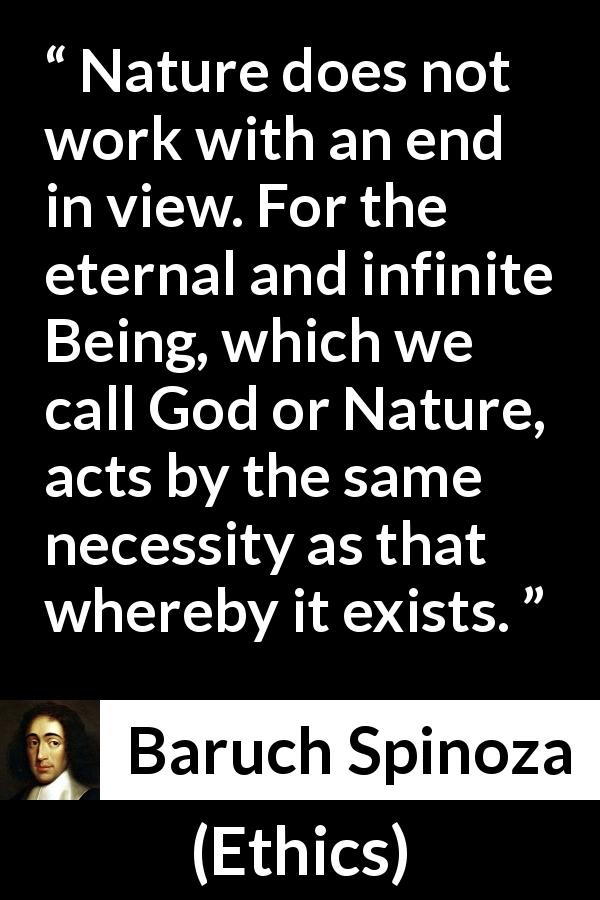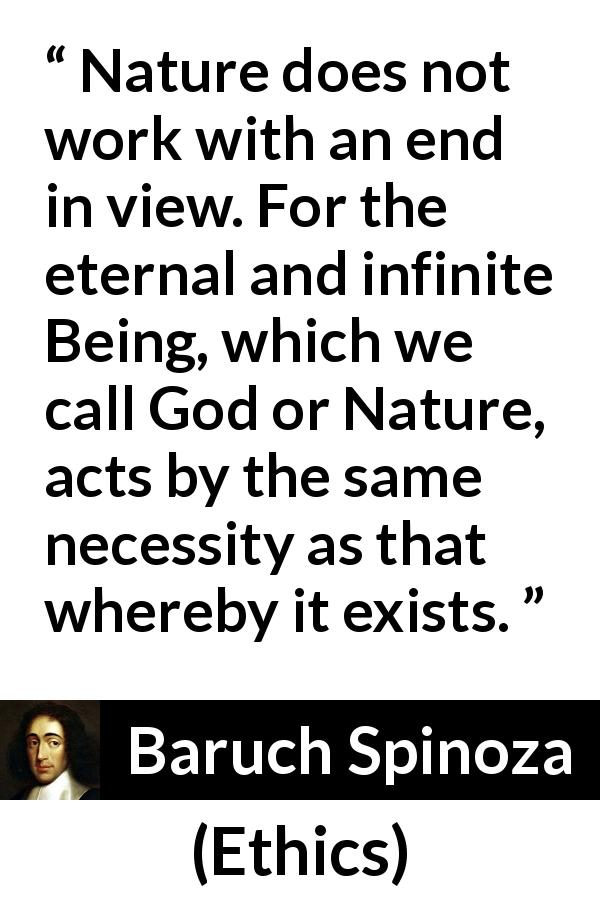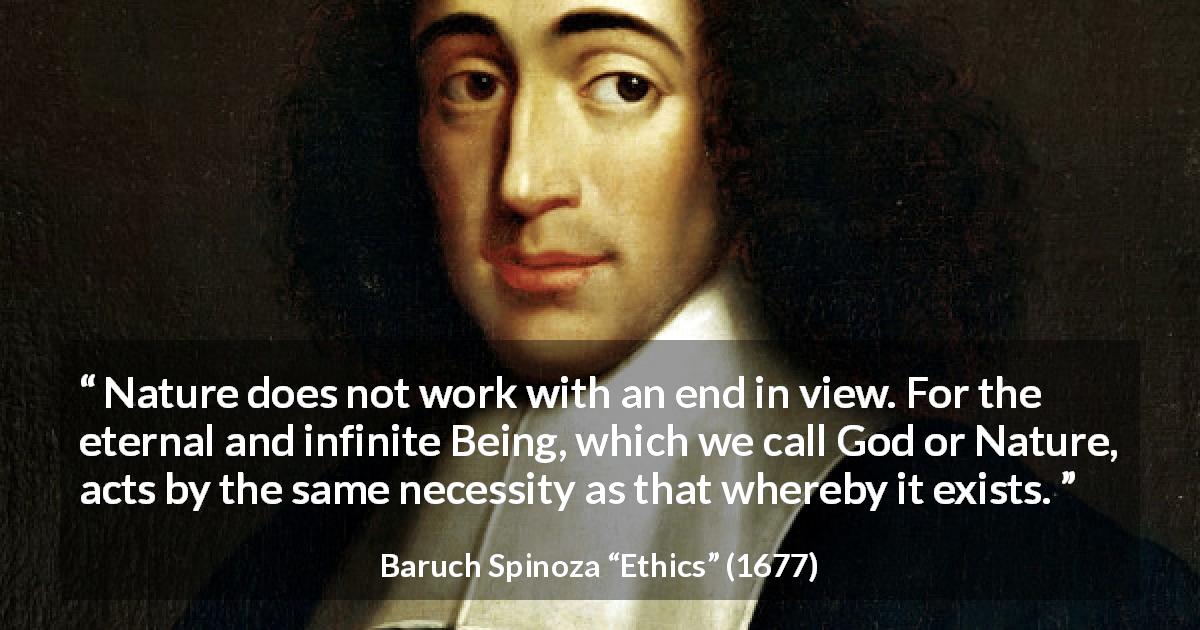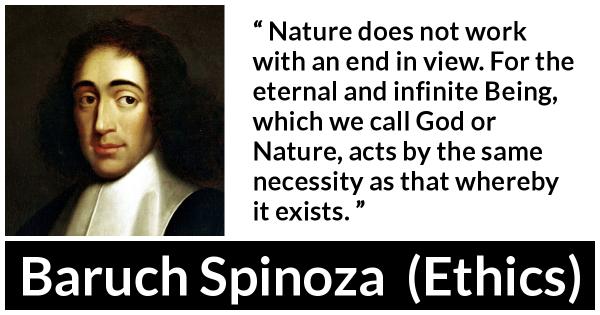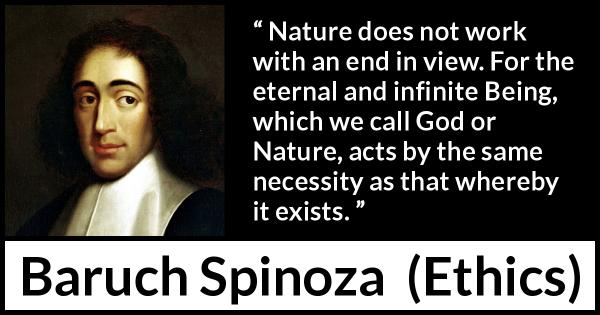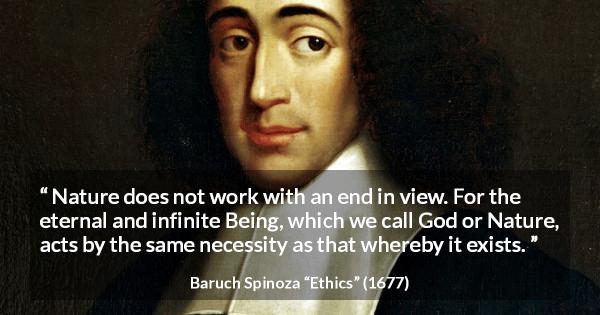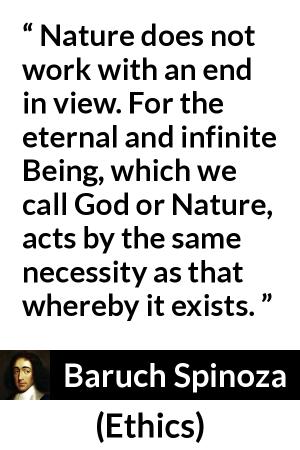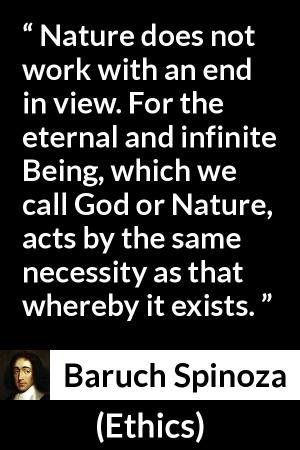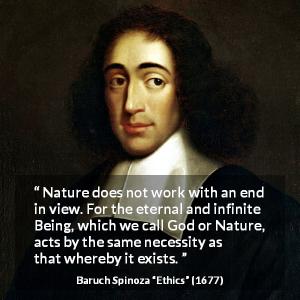“ Nature does not work with an end in view. For the eternal and infinite Being, which we call God or Nature, acts by the same necessity as that whereby it exists. ”
Baruch Spinoza, Ethics (1677). copy citation
| Author | Baruch Spinoza |
|---|---|
| Source | Ethics |
| Topic | God nature necessity |
| Date | 1677 |
| Language | English |
| Reference | |
| Note | Translated by R. H. M. Elwes |
| Weblink | http://www.gutenberg.org/files/3800/3800-h/3800-h.htm |
Context
“Therefore, when they behold something in Nature, which does not wholly conform to the preconceived type which they have formed of the thing in question, they say that Nature has fallen short or has blundered, and has left her work incomplete. Thus we see that men are wont to style natural phenomena perfect or imperfect rather from their own prejudices, than from true knowledge of what they pronounce upon.
Now we showed in the Appendix to Part I., that Nature does not work with an end in view. For the eternal and infinite Being, which we call God or Nature, acts by the same necessity as that whereby it exists. For we have shown, that by the same necessity of its nature, whereby it exists, it likewise works (I. xvi.) . The reason or cause why God or Nature exists, and the reason why he acts, are one and the same.” source
Now we showed in the Appendix to Part I., that Nature does not work with an end in view. For the eternal and infinite Being, which we call God or Nature, acts by the same necessity as that whereby it exists. For we have shown, that by the same necessity of its nature, whereby it exists, it likewise works (I. xvi.) . The reason or cause why God or Nature exists, and the reason why he acts, are one and the same.” source
